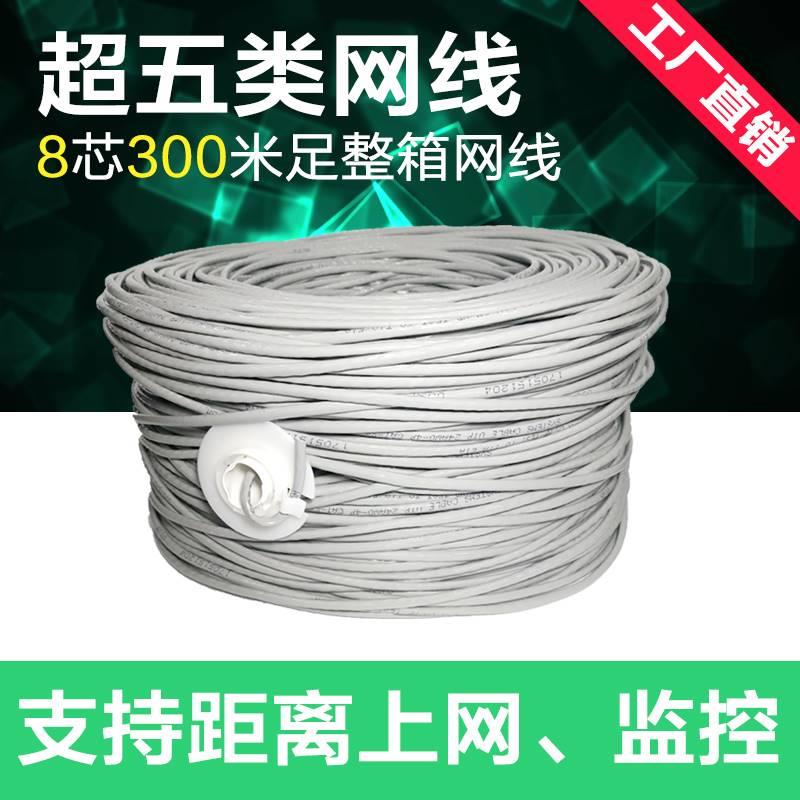"解析网络产品中网线的材质与特点"
网络青年
2024-10-02 16:02:20
0次
解析网络产品中网线的材质与特点
一、网线材质
在网络产品中,网线是连接各种网络设备的重要媒介,其材质对于网络连接的稳定性和传输速度具有重要影响。网线的材质主要分为以下几类:
1. 铜缆网线:铜缆网线是最常见的网线材质,其优点在于导电性能良好,价格相对较低。然而,铜缆网线的缺点是容易受到电磁干扰,且在长距离传输时信号衰减较大。
2. 光纤网线:光纤网线是以玻璃或塑料为媒介的光纤电缆,其传输速度极快,且不受电磁干扰影响。此外,光纤网线还具有传输距离远、抗干扰能力强、保密性好等优点。
二、网线特点
不同材质的网线具有各自的特点,具体如下:
1. 铜缆网线:虽然容易受到电磁干扰和信号衰减,但铜缆网线的优势在于其低成本和良好的导电性能。因此,在短距离、低成本的网络连接中,铜缆网线仍然是首选。
2. 光纤网线:光纤网线以其高速、抗干扰、远距离传输等特点在网络产品中占据重要地位。由于采用光信号传输,光纤网线的传输速度极快,适合于需要高带宽和大流量传输的应用场景。此外,光纤网线的保密性也较好,适用于需要保障数据安全的环境。
三、英文翻译
Analysis of Materials and Characteristics of Network Cables in Network Products
First, the materials of network cables in network products. Network cables are an important medium for connecting various network devices. Their materials have a significant impact on the stability and transmission speed of network connections. The materials of network cables are mainly divided into the following categories:
1. Copper wire cables: Copper wire cables are the most common materials for network cables. Their advantages include good electrical conductivity and relatively low prices. However, copper wire cables are susceptible to electromagnetic interference, and signal attenuation is significant during long-distance transmission.
2. Fiber optic cables: Fiber optic cables are fiber optic cables using glass or plastic as the medium. They have extremely fast transmission speeds and are not affected by electromagnetic interference. Additionally, fiber optic cables have the advantages of long transmission distances, strong anti-interference capabilities, and good confidentiality. Second, the characteristics of network cables. Different types of network cables have their own characteristics, as follows: 1. Copper wire cables: Although they are susceptible to electromagnetic interference and signal attenuation, copper wire cables still offer the advantage of low cost and good electrical conductivity. Therefore, they are still the preferred choice for short-distance, low-cost network connections. 2. Fiber optic cables: Fiber optic cables occupy an important position in network products due to their high-speed, anti-interference, and long-distance transmission characteristics. Due to the use of optical signal transmission, fiber optic cables have extremely fast transmission speeds and are suitable for application scenarios that require high bandwidth and large traffic transmission. Additionally, fiber optic cables also have good confidentiality and are suitable for environments that require data security protection. 综上所述,选择合适的网线材质和类型对于保障网络连接的稳定性和传输速度至关重要。在实际应用中,应根据具体需求和场景选择合适的网线产品。相关内容
热门资讯
网线故障排查与修复技巧
本文介绍了网线故障的排查与修复技巧,包括测试网络连接、检查物理连接、使用工具检测等排查方法,以及更换...
网线故障排查与解决方法:让网络...
本文介绍了网线故障排查与解决方法,包括物理检查、连接设备及网络设备状态等方面,针对常见故障如网络不稳...
网线的历史与发展趋势
网线历史悠久,从电话线到光纤,逐渐发展成高速、高带宽的数据传输工具。未来趋势包括高速、高带宽、光纤到...
千兆网络、万兆网络与网线的选择...
摘要:选择适合的网线是确保网络速度和效率的关键,根据网络速度需求选择Cat 5e、Cat 6或Cat...
“解析网线传输速度与距离的关系...
网线传输速度与距离关系受多种因素影响,包括网线类型、信号衰减、干扰和噪声等。较远的传输距离可能导致信...
网线故障排查:网络产品连接不畅...
本文介绍了网线故障排查及网络产品连接不畅的解决方法,包括检查物理连接、测试网线通断、重启网络设备等步...
网线的种类与用途:你了解多少?
本文介绍了网线的种类与用途。包括屏蔽网线、非屏蔽网线、光纤网线和同轴电缆,各有不同应用场景。屏蔽网线...
网线与网络产品的兼容性:如何确...
本文讨论了如何确保网线与网络产品的兼容性及性能。选择合适网线,了解产品兼容性,正确安装连接,配置调试...
网线的长度与速度:你需要知道的...
本文详细介绍了网线长度与速度的关系,指出长度对网络体验的重要性。还提到了如何优化网线长度提高速度,以...
网线连接技巧:如何正确连接两个...
文章摘要:本文介绍了连接两个网络设备的技巧和步骤,包括准备工具和材料、连接步骤及注意事项。需确保网线...

